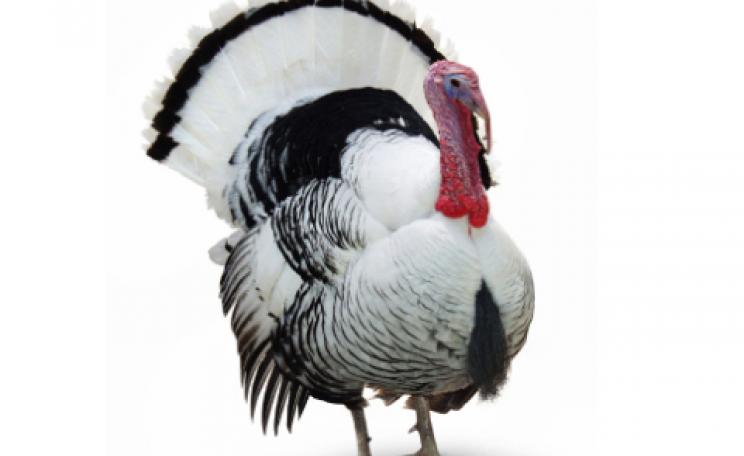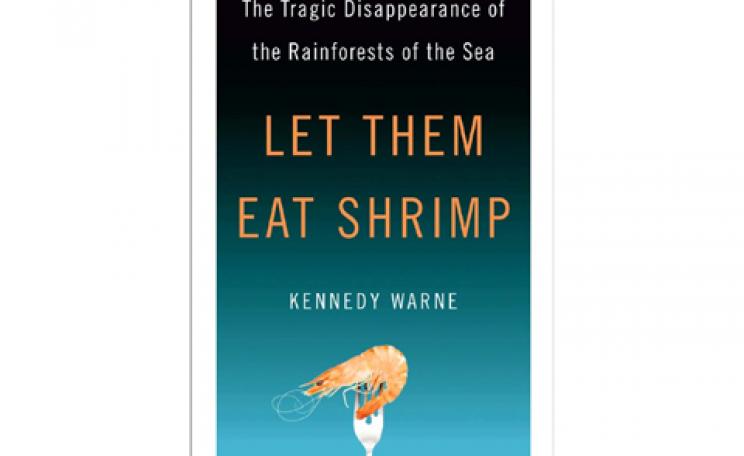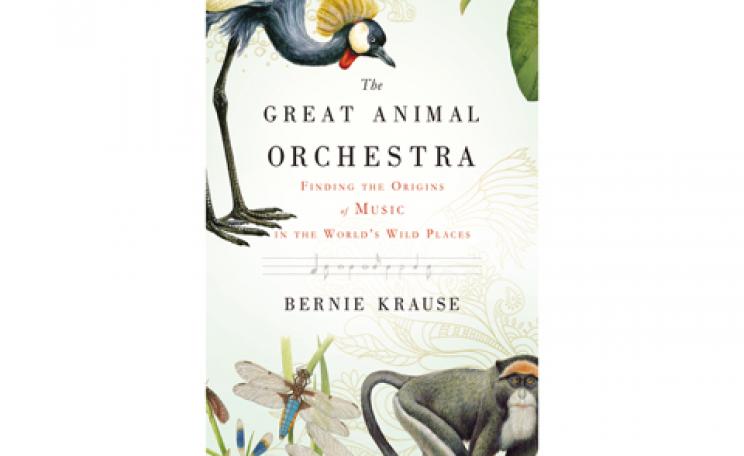A quick glance at the statistics for the environmental impact of meat production provides ample food for thought. The United Nations Food and Agriculture Organization (FAO) provides some staggering statistics. For instance, there are almost 1.4 billion cattle and 1.1 billion sheep on the planet producing 37 percent of the total methane generated by human activity, a gas that is 20 times more effective at trapping greenhouse gases than carbon dioxide. 70 per cent of all agricultural land, just under a third of the earth’s entire land surface, is used for rearing farm animals. The amount of water needed to produce one kilogramme of beef varies depending on which figures you look at, but estimates are between 13,000 litres and 100,000 litres. With this in mind, just how sustainable is eating meat? And if things really are as frightening as they appear, why don’t more people turn to vegetarianism or even veganism?
Animal welfare remains a primary motive for choosing a vegetarian diet and with over two million animals killed every day for food in this country, according to the Vegetarian Society, it’s not hard to see why. In the UK, according to a 2009 Food Standards Agency survey, around three per cent of the population are currently vegetarian, with another five per cent regularly choosing meat-free meals. Concern for the environment, though, is also a driving factor for a number of vegetarians. ‘What we choose to eat,’ says Su Taylor, a spokesperson for the society, ‘is one of the biggest factors in our personal impact on the environment.’ The Vegetarian Society cite research by RK Pachuari, the chairman of the Intergovernmental Panel on Climate Change (IPCC), who found that one hectare of land, producing vegetables, fruit and cereals can feed up to 30 people. The same area, if used to produce meat, could feed between only five and 10.
 Speaking to the Ecologist last year, the vegetarian American author Jonathan Safran Foer suggested a possible reason why vegetarianism isn’t taken up more widely: ‘People use the fear of hypocrisy to justify total inaction.’ The idea that the arguments for vegetarianism lead to veganism, which can be seen as too radical a shift and stops people from making any change in their diet, is familiar to the Vegetarian Society’s head of communications, Liz O’Neill. ‘He puts it beautifully,’ she says. ‘To make a commitment to something - even if it’s not the perfect answer - you are removing yourself from the damaging behaviour, from the damaging industry to whatever extent that commitment encircles. It’s only by drawing a line and saying “I’m not going to be a meat-eater” that you can actually not eat any factory farmed meat.’
Speaking to the Ecologist last year, the vegetarian American author Jonathan Safran Foer suggested a possible reason why vegetarianism isn’t taken up more widely: ‘People use the fear of hypocrisy to justify total inaction.’ The idea that the arguments for vegetarianism lead to veganism, which can be seen as too radical a shift and stops people from making any change in their diet, is familiar to the Vegetarian Society’s head of communications, Liz O’Neill. ‘He puts it beautifully,’ she says. ‘To make a commitment to something - even if it’s not the perfect answer - you are removing yourself from the damaging behaviour, from the damaging industry to whatever extent that commitment encircles. It’s only by drawing a line and saying “I’m not going to be a meat-eater” that you can actually not eat any factory farmed meat.’
In the face of this, justifying eating meat from an environmental perspective can seem difficult. With factory farming the predominant means of meat production - Compassion in World Farming estimates that at least 80 per cent of the EU’s farm animals are factory farmed – and a host of other issues such as overuse of antibiotics in the mix, it’s becoming harder to be an ethical meat-eater. Guy Watson, the founder of Riverford Organics, an organic food box scheme delivering 40,000 boxes of vegetables, dairy and meat a week, appreciates the difficulties. ‘There’s no doubt that in general the world would be a better place if we ate less meat and most people eat more than is good for their health and the planet’s.’
 One major problem with animal farming is the production of their feed. The crops are grown on a vast scale and combined with the space needed for cattle ranching, it accounts for the majority of the six million hectares of forest felled a year, according to Friends of the Earth. The inefficiency comes when crops such as soya, which could be eaten by humans, are being grown for animal feed instead. The environmental cost of this process is significant, as Watson explains: ‘If you need to cultivate the grains to feed the animals, you get a massive release of carbon dioxide, whereas if you feed on permanent pasture, then it tends to accumulate and is effectively sequestering the carbon dioxide.’
One major problem with animal farming is the production of their feed. The crops are grown on a vast scale and combined with the space needed for cattle ranching, it accounts for the majority of the six million hectares of forest felled a year, according to Friends of the Earth. The inefficiency comes when crops such as soya, which could be eaten by humans, are being grown for animal feed instead. The environmental cost of this process is significant, as Watson explains: ‘If you need to cultivate the grains to feed the animals, you get a massive release of carbon dioxide, whereas if you feed on permanent pasture, then it tends to accumulate and is effectively sequestering the carbon dioxide.’
Along with eating smaller portions, using more, if not all, of the animal is a far more efficient, and to some minds, respectful, way of eating meat. Having raised and killed two pigs, writer and Ecologist commentator Tom Hodgkinson estimates that he had over £1000 worth of meat from thoroughly butchering the animals, which were bought for £30 each. For Hodgkinson, taking control of the process and reclaiming production from the large-scale producers was the far more responsible way of eating meat. ‘When we had the pigs, friends would say “oh, I couldn’t do it” but you can go to Tesco and buy horrific Danish bacon because you’ve been removed from the whole process. It was quite horrible really, seeing a pig die, but we faced up to our responsibility.’
So what about fish – the protein-rich fall back for many a demi-vegetarian? FAO figures show that 92 million tonnes of wild fish were landed in 2006 globally, with a further 51.6 million tonnes coming from aquaculture. According to Taylor, the latter are unsustainably inefficient. ‘Fish feed is made from wild caught fish and you get just one pound of farmed fish out for every five pounds of wild caught fish you put in,’ she says. While the Aquaculture Stewardship Council, the industry’s monitoring body, won’t be operational until later this year, the Marine Stewardship Council (MSC) currently have 134 fisheries in their programme, all of which have been certified as fishing sustainably. James Simpson, a spokesperson for the MSC, says that by carefully choosing which types we eat, sustainable fish eating is possible: ‘We’ve just had some independent research published on the fisheries that have been certified in the MSC programme and one of the things it shows [is] an increase in stocks, so by preferencing particular sources for your fish, in this case MSC-certified, you can actually contribute to a change in the oceans, and that is an increase in the fish stocks.’
Deciding whether or not to eat meat or fish is ultimately a personal choice, although working out where the food you eat has come from is key to understanding your personal environmental impact. What remains a fact is that over-consumption of meat has significant ramifications, not only for the environment but also for our health, with a 2011 Worldwatch Institute report finding that by significantly decreasing the amount of red meat eaten, 11 percent of all deaths in men and 16 percent in women could be prevented. Eating smaller portions of ethically farmed meat is perhaps the most sustainable way of being a meat-eater, even if it means paying more. Either way, responsible meat and fish consumption is a tricky area to navigate.
 Five ways to save the planet via your plate
Five ways to save the planet via your plate
Eat more pulses
Eat protein sources from lower down the food chain, like pulses and nuts. Su Taylor explains: ‘Grains, pulses and nuts have a much smaller carbon footprint than meat products by about a factor of three and are ideal as foods for human consumption.’
Choose seasonal
Buy seasonal fruit and vegetables. By eating produce grown locally, you'll not only be supporting the British food industry, you'll also reduce your food footprint by 57 percent, according to Vegetarian Society figures.
Try meat-free Mondays
Lowering your meat intake might mean taking the lead from Paul McCartney and his Meat Free Mondays campaign, and having one day a week where you eat no meat. Alternatively, try Riverford’s ‘meat and 10 veg’ philosophy, where the portion of meat is combined with a plentiful selection of veg. ‘We can still eat exciting food and eat half, or even quarter, as much meat as we already do,’ says Guy Watson.
Avoid the supermarket
Buy from box schemes or local farm shops. As well as Riverford, there’s Abel & Cole and, if you’re a Londoner, Farmaround. Veg Box Recipes has a handy box scheme finder online. All deliver organic produce, particularly useful if you live in an area where it’s hard to get hold of, and many include recipes and weekly plans to make the most of what you buy.
Switch to sustainably sourced fish
Eat MSC certified fish. ‘Ask about the provenance of the fish you’re buying, ask about how traceable it is,’ says James Simpson. ‘By choosing MSC in a supermarket or restaurant or even asking for it where you can’t find it, you’re helping to send a message straight back down the supply chain and you’re making a difference on the ocean through sales.’ In addition, concern about eating cod is a something of a misconception; certain cod fisheries, such as Pacific, Norwegian North East Arctic and Baltic, all MSC certified, have healthy stocks.
| READ MORE... | |
 |
INTERVIEW Jonathan Safran Foer: environmentalists who eat meat have a blind-spot Factory farming depends on our ignorance but the world needs to move away from eating meat, US author Jonathan Safran Foer tells Tom Levitt |
 |
GREEN LIVING Ethical food: four new year's resolutions that you can keep It’s resolution time again so start 2012 on an eco-friendly note by cutting out food miles and eating less meat |
 |
GREEN LIVING Want to know where your meat really comes from? Want to know how and where your favourite meat is produced? Ruth Styles asked four industry experts to give their verdict on the realities of animal welfare in the UK today |
 |
GREEN LIVING Snack on that! Are insects the future of food? With seven billion people to feed, agriculture is feeling the strain. So are creepie crawlies the solution? The Ecologist takes a closer look |
 |
GREEN LIVING Five fish it’s OK to eat The Marine Stewardship Council's James Simpson picks five fish that can be enjoyed guilt-free |








